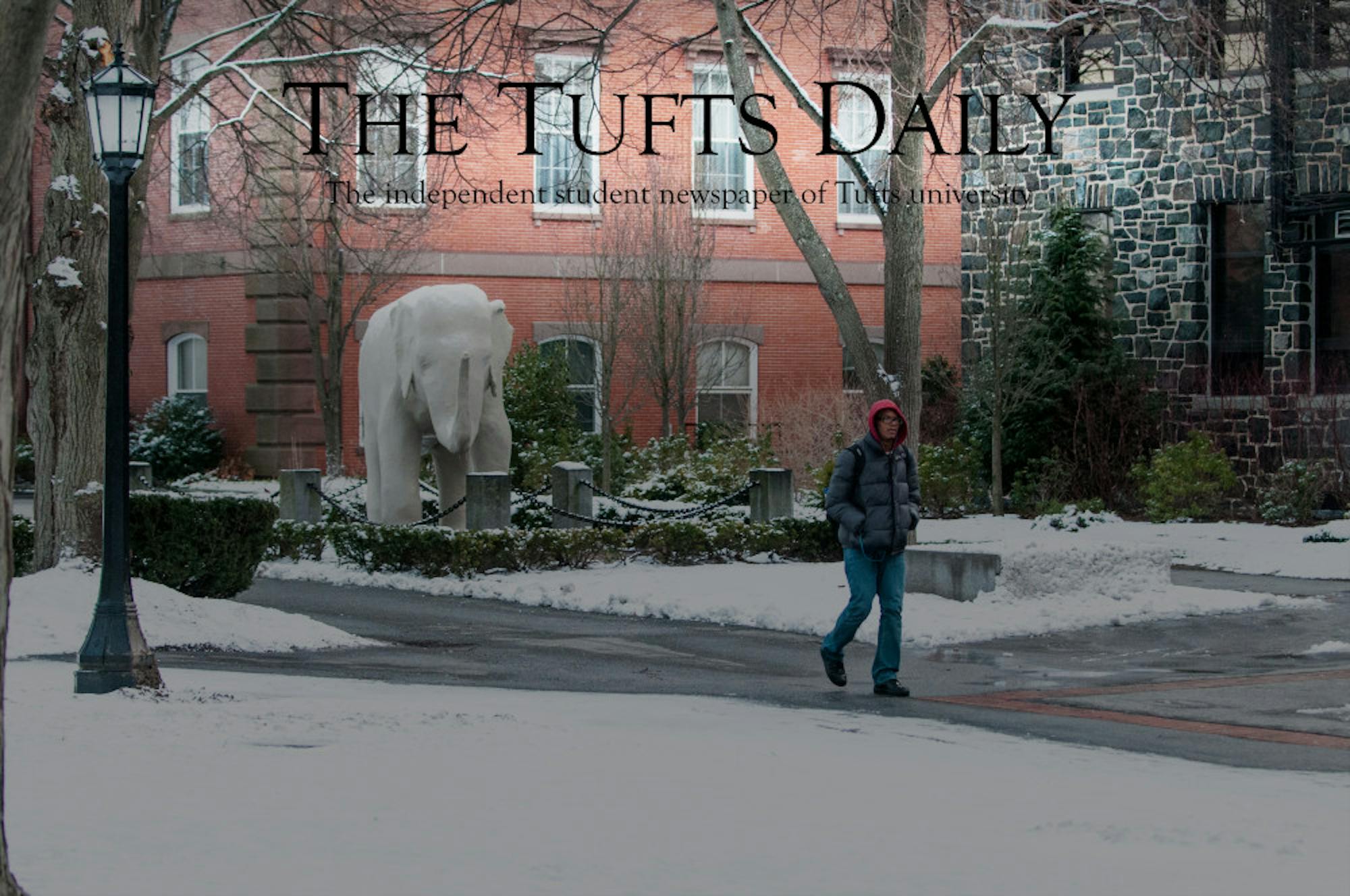Ballerinas generally don't often choose their career with the expectation that they will emerge from their time on the stage as seasoned actors. Years of daily classes with 15 other girls in black leotards accompanied by the plinking of a single pianist isn't exactly an environment that lends itself to the development of a highly tuned sense of the theatrical - that's something you learn gradually on the stage.
As a ballet that takes on the steep task of both embodying Shakespeare's play and showcasing George Balanchine's choreography, "A Midsummer Night's Dream" requires a deck stacked with good actors. Boston Ballet has risen to the occasion in a production that would make both men proud.
The ballet opens with a horde of pint−sized dancers masquerading as bugs of the forest - butterflies, flitting across the stage and serving as a living backdrop to the hijinks of the foolish mortals that have overrun their forest. Bemusement gives way to admiration - these insects, borrowed from among the ranks of the Boston Ballet School, have most likely been training for months, and their precision and determination shows it.
Jeffery Cirio proves a delightful Puck. Though slightly too innocent to match the devilishness of his master, Oberon (the regal John Lam, delivering a delightfully moody performance), Cirio's childish energy was felt down the Boston Opera House's aisles and through the lobby. As Puck's fairy magic brings the kingdom to a halt with mistaken identity and star−crossed love, it's hard not to be tickled by Cirio's delirious enjoyment of the whole mess.
Kathleen Breen Combes steals the first act as a desperate Helena - her dancing is superb, and her pursuance of the evasive Demetrius (Yury Yanowsky) is more unrelenting obsession than schoolgirl crush. She grasps at him with every appendage, draping her body across Demetrius like her life depends on his acceptance.
Her zeal is matched only by Yanowsky's emphatic rejection in favor of a sweet yet understated Erica Cornejo as Hermia. Yanowsky - who at first seems like he would be more at home in a Victorian parlor or a shady boardroom than a mystical forest - scampers after his own crush like a caffeinated puppy.
Unfortunately for Demetrius, Hermia and Lysander (Pavel Gurevich) are all over each other like that nauseating, over−expressive couple fondling each other on the T ride to a Valentine's Day date. It's appropriate that the only thing that can come between them is a bit of mischievousness: a love potion wielded by Puck.
The company's corps performs beautifully as a frame for Lorna Feijo's gorgeously precise Titania. While at first a little stiff, Feijo's obvious charm comes alive when Puck leaves her under a spell and in love with Bottom, a drunken actor whom Puck has charmed to have the head of a donkey. Feijo's dainty fawning over Robert Kretz's oafish Bottom is a sight to see - Shakespearean comedy at its best.
While the ballet's first act showcases the company's agility in maneuvering the complex storyline, the second act is all about the dancing. The couples, now properly matched up with a little more prodding from their impish friend, emerge for a wedding celebration with return performances from the butterflies and fairies as witnesses.
Larissa Ponomarenko in the divertissement's pas de deux takes absolute control of the night. Her technique is impeccable, and she brings a sense of humility to her dancing that makes it at once both impressive and accessible. Himself a force to be reckoned with, James Whiteside as her partner proves himself a formidable dancer but makes his mark principally as an anchor for Ponomarkeno's serene execution.






